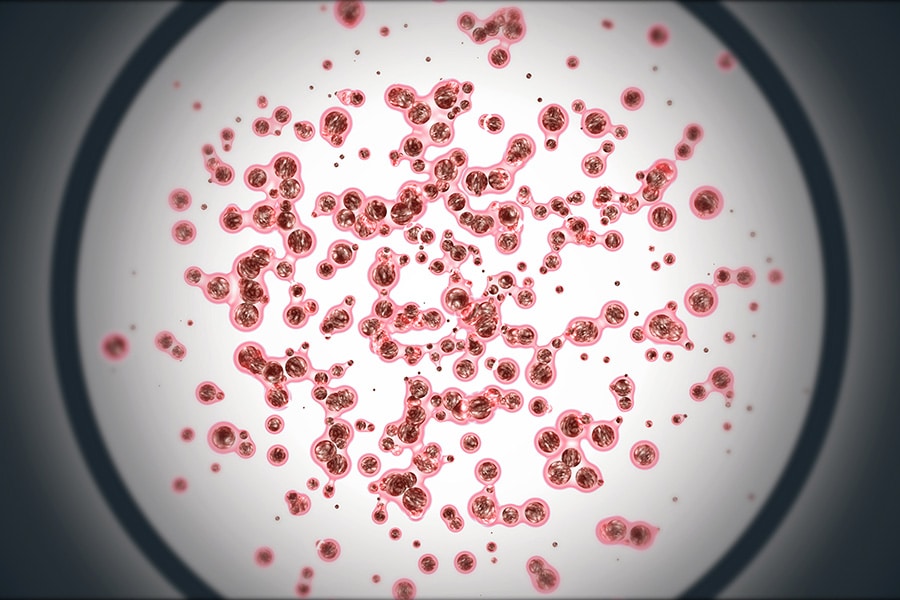The media has buzzed with information on the stem cell therapy controversy. Some sites have said it even causes tumors and that doctors extract the cells from live embryos. While these facts are true for embryonic, amniotic stem cells are quite different.
They are a revolutionary alternative with almost the same regenerative power for your chronic pain. You can have a clean moral conscience using all-natural amniotic stem cells that do not touch the embryo. Relief is on the way for previous sports injuries or years of debilitating muscle aches and inflammation.
We want to walk you through the differences between these two stem cell types so you can know the truth about stem cell therapy. Human amniotic fluid-derived stem cells are not what you think they are.
Amniotic vs. Embryonic
Many people confuse these stem cell therapies and believe all pain specialists use embryonic methods. Again, that’s all they hear from the media, so it’s easy to believe. But there are crucial elements that set amniotic stem cells apart and make them “a valuable stem cell source for the field of regenerative medicine.” (Stem Cells Journals)
What are They?
Amniotic fluid-derived stem cells (AFSCs) are stem cells that come from amniotic fluid, unlike most stem cell treatments that use adult stem cells from your bone marrow. Specifically, our practice takes placental AFSCs as a result of c-sections (with the mother’s permission). We only take from amniotic fluid without touching the baby so patients like you can heal from chronic pain without a guilty conscience.
Get Back Your Normal Life Again
As pain specialists, we can guarantee that we are more than qualified in alleviating your pain and treating your condition.
They are not pluripotent or carry the necessary DNA to turn into any cell in the body. However, their genetic makeup resembles embryonic’s pluripotency and has differentiation potential to turn into all 3 germ layers. AFSCs are a safe and invaluable treatment that has helped thousands of patients recover a pain-free life.
On the other hand, embryonic stem cells (ESCs) can differentiate into almost every cell in your body. Doctors can use them to manage pain and cure diseases, so they have more versatility than AFSCs. However, researchers must fertilize donated eggs with sperm and extract what they need directly from the growing embryo.
The FDA and other medical organizations have cried in outrage against such practices with ESCs.
Where Do They Come From?
Doctors will pull amniotic fluid stem cells from contenting women during already-planned cesarean section delivery (C-Sections). Medical professionals will take the leftover amniotic fluid, extract the stem cells they need, and use them to help patients with chronic pain. They will only utilize these nutrient-rich stem cells with the mother’s permission and do not touch the baby.
Embryonic stem cells do not have as clean a slate for their origins. Scientists will take donated eggs from a woman’s ovaries and fertilize them in a lab. Mayo Clinic explains that researchers hold them in Petri dishes or test tubes for 3-5 days. Then, the doctor will extract pluripotent cells straight from the embryo, not the fluid.
There are obvious complications and things wrong with ESCs. But AFSCs come from the natural products of pregnancy and the amniotic membrane, completely skipping the embryo.
What Are They Used For?
Medical specialists will use embryonic and amniotic stem cells for regenerative pain management and clinical applications. We primarily help patients by creating new bone cells, muscle cells, and tissues. Stem cell therapy can also reduce inflammation in certain areas and significantly decrease pain.
Scientists studied and researched ESCs because they are pluripotent, meaning they can transform into almost every cell in your body. They found the door to modern medicine open with the ability to treat hundreds of diseases and aches, even finding therapeutic applications. However, ethical issues prevent them from taking advantage of their full capabilities.
AFSCs are an ethical and safe alternative that do not touch the embryo. Although they are not pluripotent, they are close to it and have massive versatility in the pain management world.
Do They Have Ethical Issues?
As we’ve already explained, embryonic stem cells have severe ethical issues that make it impossible to continue research on them. The FDA has certain guidelines on which stem cell treatments they approve and which ones they do not. There is stark disagreement with ESC research amongst the scientific and online communities.
The ethical issues with embryonic stem cells do not exist with AFSCs. Pain specialists extract these stem cell injections from amniotic fluid that avoids the embryo altogether.
Stem Cells You Can Trust
Our practice believes in the restorative power of stem cell therapy without unethical extraction methods. We source from AFSCs because we believe in restoring your cells rather than just repairing them.
Insurance does not cover stem cell therapy, but we can give you a trial injection alongside a covered treatment to give you a comparison. This is a part of our practice’s invention plan that our specialists work with you on.
We do not believe in putting a bandage over a broken bone with your pain management, unlike many physicians you have been with. You may have had experience with medications, MRIs, and physical therapy that never gave you a pain-free life.
However, we believe AFSCs are a natural phenomenon in regenerative medicine that could help alleviate your pain. To get started with stem cell therapy and start a personalized intervention plan, call our pain specialists at (480).986.7246.

